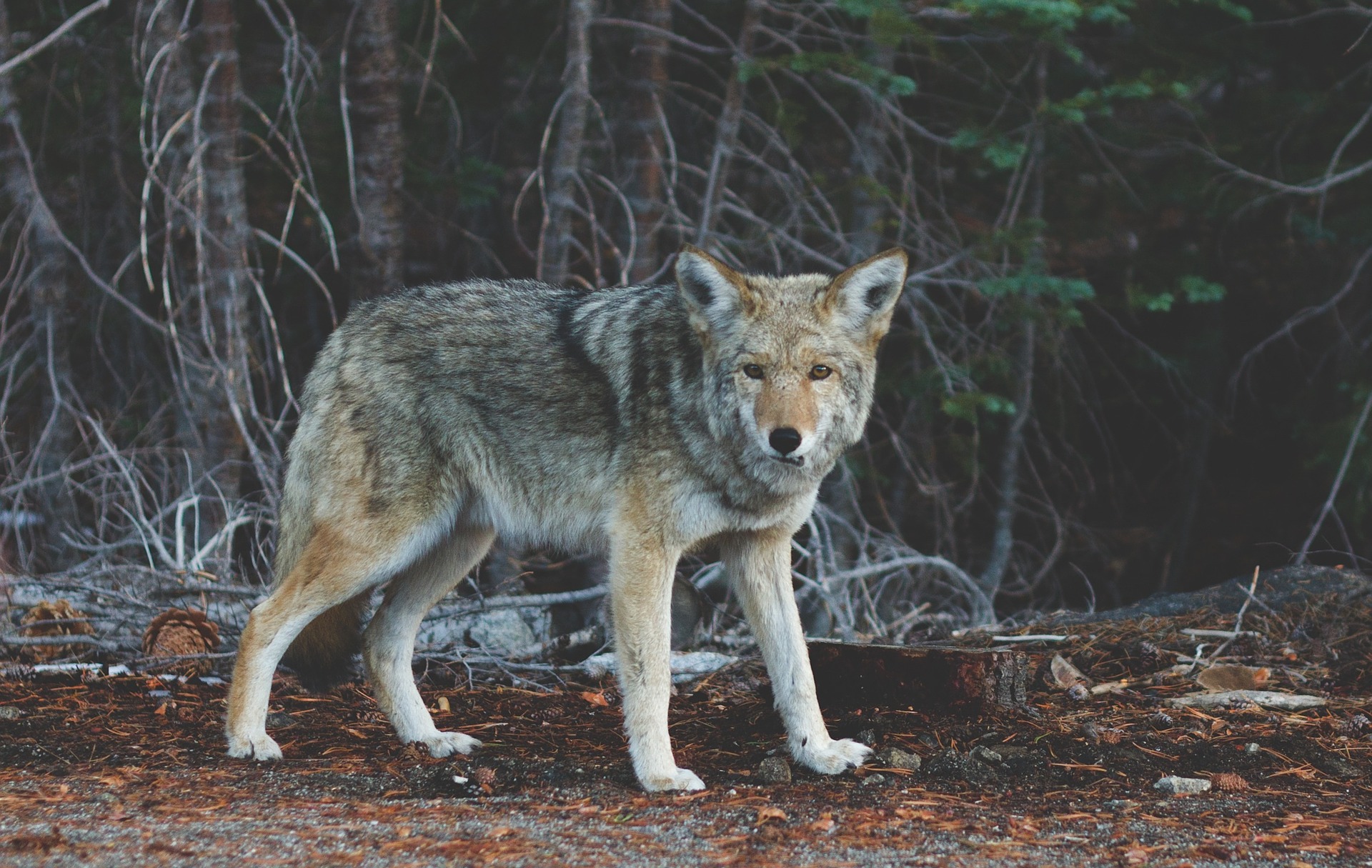July 7, 2018
Living just a few miles north of Houston, it’s not uncommon for me to hear coyotes howling at night. I get a little nervous when I hear them because they have been known to attack domestic animals. I saw on the news a few weeks ago where a coyote jumped a fence in broad daylight and attacked a small dog. Luckily, the owner was able to scare the coyote and no harm was done to the dog. Because natural habitats are disappearing, more and more coyotes are being sighted in urban settings.
TWRC only accepts coyote pups and we get very few of them but they are very interesting animals and I thought you might enjoy learning about them.
- They are about the size of a small German Shepherd. They have yellowish eyes.
- They are highly intelligent members of the dog family and are described by wildlife experts as clever, cunning and sneaky. They have a strong sense of hearing, smell and sight.
- Dogs run with their tails up; coyotes run with their tails down.
- They are classified as carnivores but will eat almost anything.
- The coyote is very vocal. A long howl lets others know its location. Short barks warn others of danger. They “yip” when reuniting with other pack members and will growl to establish dominance within the pack. They whimper and whine when bonding and make a high-pitched bark to call its pups.
- They can live up to 14 years in the wild.
- Some consider them a nuisance and attempt trapping and other nuisance-control measures. This will never eliminate them. Remove one and another one will move in to take its place. In The Woodlands, Texas, a few years ago several coyotes were removed. The result was that feral pigs moved in and destroyed lawns. According to Texas Parks and Wildlife, “The real solution and the greater need facing Texans right now is public education. We need to inform and empower people to take steps to coexist with coyotes and other urban wildlife.”
- Coyotes can run up to 40mph.
- Coyotes are 100% monogamous according to a study by scientists at Ohio State University in 2012. "I was surprised we didn't find any cheating going on," said study co-author Stan Gehrt, a wildlife ecologist with Ohio State's School of Environment and Natural Resources.
- Coyotes are great swimmers.
If you have questions about wildlife, please refer to our website at www.twrcwildlifecenter.org. If you can’t find the answers you need, give us a call at 713.468.8972.
